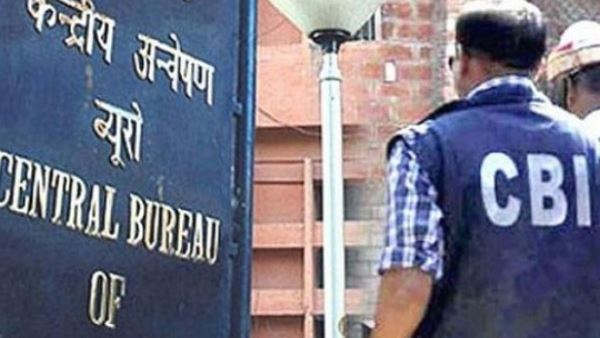
PM Modi unveils Rs 900 crore ethanol plant to help Delhi-NCR breathe easy
[ad_1]
PANIPAT: PM Narendra Modi on Wednesday marked world biofuel day by inaugurating a Rs 900 crore plant in Haryana for producing ethanol from farm waste using indigenously developed 2G (second generation) technology, a development he said would help Delhi and its neighbourhood breathe easy by reducing pollution from burning of farm stubble.
The plant, first of its kind in the country, built by state-run IndianOil at its Panipat refinery complex, puts India in league with the US and Brazil, the only countries that had 2G ethanol technology till now. “Instead of following short-cuts, our government is engaged in permanent solutions to the problems. A lot has been said about the problems of stubble burning over the years. But those with a short-cut mentality could not solve it,” the PM said.
Modi, who addressed the gathering through video-conferencing, said farmers who were getting a bad name due to compulsions of parali (crop residue) burning will now feel the pride of contributing to production of bio-fuel and nation building.
The Panipat plant will give farmers of Haryana, where rice and wheat are grown in abundance, a financially rewarding alternative to burning the crop residue, which chokes the National Capital Region in winters. It will reduce pollution by creating a system of putting stubble to proper use instead of burning and provide new livelihood opportunities in villages, the PM said.
The plant will procure two lakh tonnes of rice straw for producing 100 kilo litre of ethanol per day. Three more units are being built by state-run oil companies towards meeting ethanol demand for achieving 20% blending of petrol by 2025 as part of the country’s carbon reduction architecture.
Oil minister Hardeep Singh Puri said the country has saved Rs 41,500 crore in oil import bill by achieving 10% ethanol blending of petrol, while farmers have gained Rs 40,600 crore in additional income. Carbon emission has also been reduced by 27 lakh tonnes so far.
Modi said people who have a tendency to avoid problems by adopting shortcuts for political selfishness can never solve the problems permanently. Those adopting short-cuts may get applause for some time and may gain political advantage. But that does not solve the problem. Adopting a short-cut will definitely result in a short-circuit.
“In a country such as ours that worships nature, biofuel is a synonym for protecting nature. Our farmer brothers and sisters understand this better. Biofuel for us means green fuel, environment-saving fuel,” he said.
“Our farmers waste nothing. From sowing the seeds to taking the crop to the market, they use everything coming out of their farms. Farms that produce grain also provide fodder for cattle. Some use crop residue for making earthenware. Most farmers also know how to put residue to proper use. But it is also true that not all residue is consumed in states such as Haryana with abundant rice and wheat cultivation,” Modi said.
Content state:

The plant, first of its kind in the country, built by state-run IndianOil at its Panipat refinery complex, puts India in league with the US and Brazil, the only countries that had 2G ethanol technology till now. “Instead of following short-cuts, our government is engaged in permanent solutions to the problems. A lot has been said about the problems of stubble burning over the years. But those with a short-cut mentality could not solve it,” the PM said.
Modi, who addressed the gathering through video-conferencing, said farmers who were getting a bad name due to compulsions of parali (crop residue) burning will now feel the pride of contributing to production of bio-fuel and nation building.
The Panipat plant will give farmers of Haryana, where rice and wheat are grown in abundance, a financially rewarding alternative to burning the crop residue, which chokes the National Capital Region in winters. It will reduce pollution by creating a system of putting stubble to proper use instead of burning and provide new livelihood opportunities in villages, the PM said.
The plant will procure two lakh tonnes of rice straw for producing 100 kilo litre of ethanol per day. Three more units are being built by state-run oil companies towards meeting ethanol demand for achieving 20% blending of petrol by 2025 as part of the country’s carbon reduction architecture.
Oil minister Hardeep Singh Puri said the country has saved Rs 41,500 crore in oil import bill by achieving 10% ethanol blending of petrol, while farmers have gained Rs 40,600 crore in additional income. Carbon emission has also been reduced by 27 lakh tonnes so far.
Modi said people who have a tendency to avoid problems by adopting shortcuts for political selfishness can never solve the problems permanently. Those adopting short-cuts may get applause for some time and may gain political advantage. But that does not solve the problem. Adopting a short-cut will definitely result in a short-circuit.
“In a country such as ours that worships nature, biofuel is a synonym for protecting nature. Our farmer brothers and sisters understand this better. Biofuel for us means green fuel, environment-saving fuel,” he said.
“Our farmers waste nothing. From sowing the seeds to taking the crop to the market, they use everything coming out of their farms. Farms that produce grain also provide fodder for cattle. Some use crop residue for making earthenware. Most farmers also know how to put residue to proper use. But it is also true that not all residue is consumed in states such as Haryana with abundant rice and wheat cultivation,” Modi said.
Content state:

Writing
In use by:
Reporter(s):
Last modified:
10-08 23:29 – Prashant Mane
Requested size:
75 lin
Actual size:
–
Category:
Contextual use:
Normal
Description:
Correction:
Usages of this branch:
TOIBangaloreBS 11-08-2022, BangaloreCity/1 – Nation, A/6 TOIBGCC5
TOIDelhiBS 11-08-2022, Delhi/1 – Nation, A/13 CAPP111
All usages:
[ad_2]
Source link


